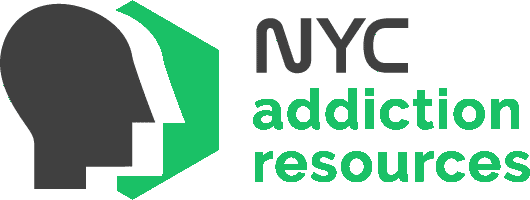
Welcome To Aftercare Programs!
One does not have to battle drug addiction and mental illness alone. Different levels of care, like aftercare programs, can accommodate different journeys. Perhaps you began your recovery journey in a partial-hospitalization program (PHP). Or maybe an intensive outpatient program worked better for you. Now, you’ve entered a transition. You’ve moved into an aftercare program. So, what happens now?
NYC Addiction Resources will answer the following questions:
- What are aftercare programs?
- Are there different kinds of aftercare programs?
- How do aftercare programs help people?
- Why do we need support from peers?
- How can I get more information about aftercare programs?
What Are Aftercare Programs?
Compare aftercare programs to other tiers of treatment. They offer the most freedom. Aftercare programs have very few restrictions. One cannot live at a recovery center forever. One must eventually transition out of this environment. In one’s own home, one can structure life around the principles learned in recovery. Here is where aftercare programs can help.
Remember, recovery does not end when treatment does. Aftercare programs begin after more intense forms of treatment. The ease you out of a clinical setting and back into the real world. Aftercare gives you the next step in your lifetime recovery efforts.
We refer to aftercare programs kind of treatment as an outpatient program (OP). Outpatient programs allow people to get help while maintaining their responsibilities. Someone in aftercare can go to work, oversee their household obligations, or attend school.
Are There Different Kinds Of Aftercare Programs?
Yes, different kinds of aftercare programs have become available. Every person’s life has different circumstances. By the same token, not every aftercare program suits every person. Keep reading for more information. See which option might best fit your own needs.
Individual Therapy
Individual therapy involves one-on-one interactions with a counselor or therapist. The therapist will ask the client direct questions about their current experiences. In this stage, a client should work with the therapist to create a relapse prevention plan. Implementing this plan will have difficulties, which may cause stress for the client. The client must anticipate stress and have productive outlets in place.
Group Therapy
Group therapy invites clients to share experiences with one another. A therapist or counselor will act as a moderator. At the start of the meeting, the moderator will ask for a volunteer to speak. Once this person finishes speaking, other group members may respond. Note that these sessions prohibit crosstalk. Group members do not talk directly to one another. Rather, they speak to the group as a whole.
12-Step Programs
12-step programs include organizations like AA, NA, Rational Recovery, and Celebrate Recovery. Membership in groups like these provides support from peers. !2-step programs give clients long-term solutions for recovery.
How Do Aftercare Programs Help People?
Treatment programs can help a person construct a foundation for recovery. Aftercare programs continue that foundation. They help a person bring their recovery to complete fruition. Recovery does not end with sobriety. And abstinence, while a worthwhile goal, does not represent a conclusion.
One recovers for the rest of one’s life. And as much as clinics and treatment centers help, they intentionally separate themselves from real life. Treatment centers give refuge from life. Aftercare helps a person adjust from a controlled treatment environment back into daily routines and stressors. One cannot reside in a treatment center forever. But with aftercare programs, one can maintain a recovery perspective in one’s “normal” life.
Why Do We Need Support From Peers?
Those in recovery need counseling. The treatment space could not properly function without them. Recovering folks must have proper medical and psychological care. But, one should not expect to receive treatment and then return to one’s life without making some changes. Peer support becomes essential here.
One only gains certain forms of knowledge through personal experience. Groups like AA have mentoring programs for a reason. One can learn much from someone who has shared one’s struggles. People can form meaningful bonds over shared experiences. A therapist cannot develop a friendship with a client. But a peer can. This kind of personal relationship anchors one to one’s future.
In therapy, a person can learn how to get sober. But peer groups help people stay sober. In your journey, you will likely find staying sober becomes much harder. To remain sober, to practice recovery, seek out peer support.
How Can I Get More Information About Aftercare Programs?
NYC Addiction Resources has all the resources you could need. We have witnessed the power of aftercare programs in the lives of our clients. We can personally testify to their effectiveness.
If you or someone that you love struggles with substance abuse disorder, let us know. Don’t wait any longer to demand the best in addiction treatment. Visit our contact page. Call or email us for more information.


